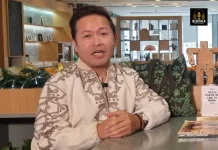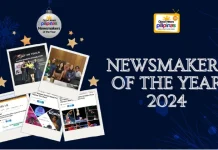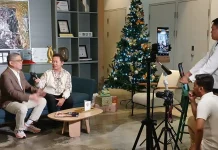
De La Salle University (DLSU) Manila’s social media research has led to the creation of multimedia material to help youth, parents, and schools counter cyberbullying and harassment.
The Lasallian school research project report “How Filipino Youth Identify and Act on Bullying and Harassment on Social Media” shows how young Filipinos describe cyberbullying as having many possible targets, seen in online actions, and happening across many digital platforms – in a much wider range than earlier studies have identified.
The project involved in-depth interviews with 152 Filipino youth, aged 15-24, of different genders and educational statuses. The research was conducted over a two-year period and covered Metro Manila, Batangas in Luzon, Negros Occidental in the Visayas, and Misamis Occidental in Mindanao.
The De La Salle University research team was led by Professor Cheryll Soriano of the Department of Communication and included Professor Jason Cabañes and Dr. Jan Bernadas, also from the Department of Communication, and Professor Maria Caridad Tarroja and Kimberly Kaye Mata of the Department of Psychology.
The dimensions of bullying and harassment online

The study highlighted how Filipino youth identify bullying and harassment online: targets (individual, groups, or ideas), acts (direct or veiled), and spaces (bounded or open, fluid).
Dr. Bernadas explains the dimension of targets: “bullying and harassment can be aimed at individuals. Beyond this, online posts, memes, and the like can also be aimed at groups like the queer community, and ideas like believing in a particular political stance.”
Professor Cabañes describes the dimension of acts: “Bullying and harassment can be direct and in your face. But it can be veiled because you can just subtweet someone or talk about a person who isn’t part of the group chat you’re in. Sometimes, bullying is also concealed in the form of jokes, teasing, and sarcasm among friends that may seem like fun but are actually perceived as bullying and hurtful to the peers.”
Kimberly Kaye Mata points out the third dimension of spaces: “These things can start in a private chat. But it can escalate to the point that it happens openly on social media, like what you see with bashing or with cancel culture.”
“We wanted to go beyond official definitions of social media bullying and harassment and hear what young people themselves had to say,” said Professor Soriano.
Addressing bullying and harassment online

The research recommends addressing social media bullying and harassment with the collective response of platforms, local support communities such as schools and parents/guardians, as well as the youth themselves.
Based on the project findings, the research team is launching a series of online videos produced for the youth and downloadable infographic posters for schools and parents/guardians.
These multimedia materials are available in English, Tagalog, Hiligaynon, and Bisaya.
The anti-cyberbullying media content will be released at an online event on July 8, 2022, at 10 AM during De La Salle University’s 2022 Research Congress.
Psychology Professor Maria Caridad Tarroja emphasizes that the multimedia materials help push for one of the most important insights from the research. She says, “Responding to the challenge of social media bullying and harassment cannot just be done by the Filipino youth alone. Alongside these young people, there also needs to be collective responses from social media platforms and local communities.”
The full report and the multimedia materials are available for download here.
DLSU has been involved in many groundbreaking types of research including one that has developed astronaut spacesuits lined with Philippine abaca fiber and the COVID queue calculator.
Good News Pilipinas is a Lasallian Scholarum Awardee. TELL US your good news story tips by messaging GoodNewsPilipinas.com on Facebook, Twitter, Instagram, or e-mail editor@goodnewspilipinas.com and WATCH Good News Pilipinas TV YouTube & Good News Pilipinas TikTok for more Filipino Pride stories!










